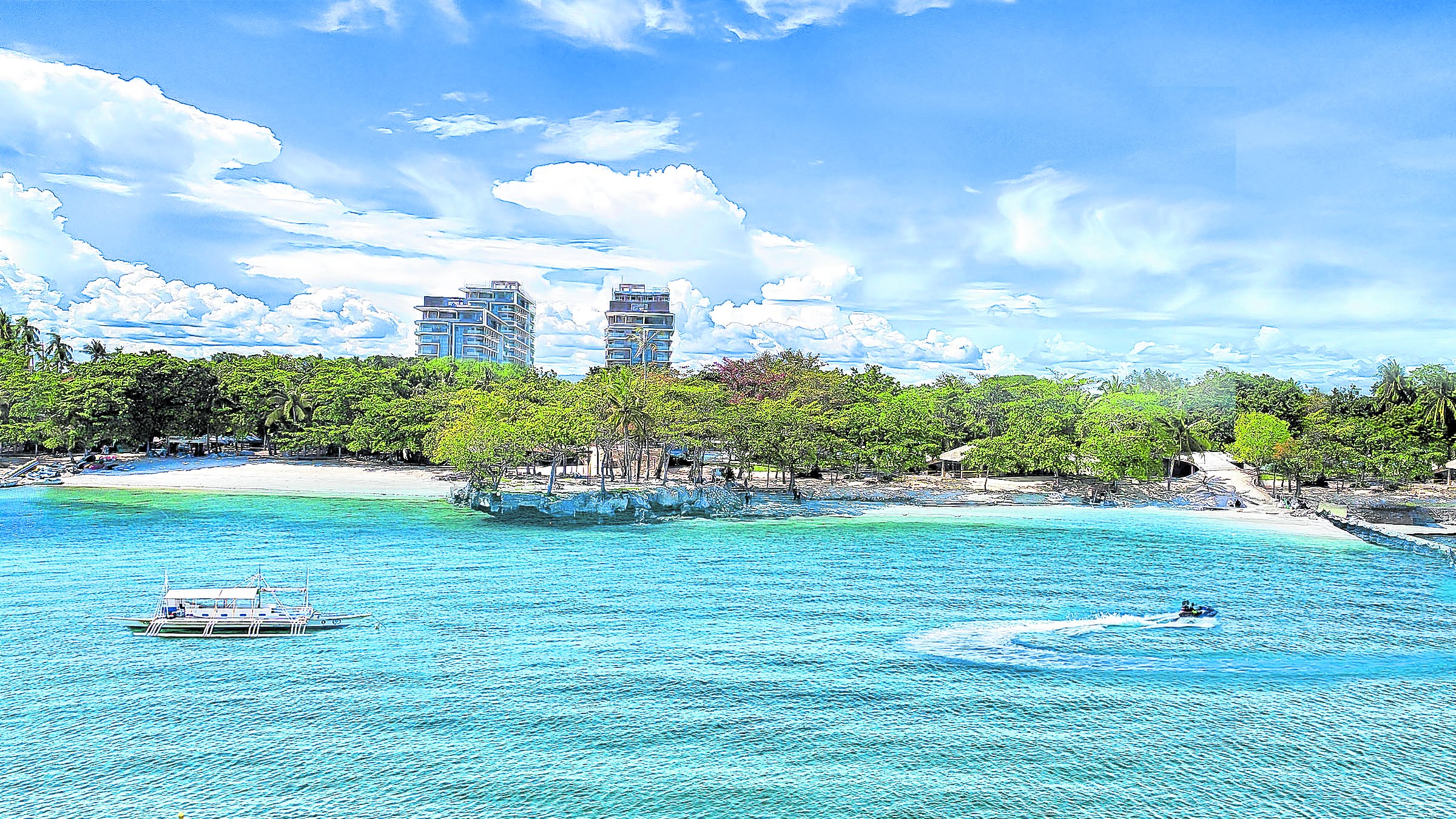CEBU—Everybody has a story of survival in this time of pandemic.
And one that inspires is that of the Tambuli Seaside Resort and Spa in Cebu, fondly referred to as the Mother of Mactan beach resorts.
The four-hectare resort, which is part of a multibillion project of Cebu-based Tytans Properties and Development, Inc. (TPDI), used to be the Tambuli Beach Club, an institution in Mactan as it was a favorite destination in the 1980s when the island wasn’t the bustling tourist destination it is today.
TPDI bought the property in 2012 to transform it into a world-class destination.
“The concept was to bring in a world-class destination for both locals and international tourists to explore. Plans, including the residential component, the resort facilities and the future hotel, and other significant areas, were finalized in 2013,” said TPDI president and chair Gerard Tan.
The 11-hectare property went through redevelopment, but TPDI made sure to preserve its iconic beach front.
The developer also highlighted the resort’s lush greenery with old trees, most of which have been around for more than 30 years.
“Aside from that, we put in place a tropical, modern resort that will surely compete with the most current resorts in the Philippines, and upscale facilities are still to be in place as planned,” Tan said.
Master plan
The rest of the 11-hectare property will house luxury residential units, all part of TPDI’s master plan.
The new, improved and expanded Tambuli was off to a good start in November 2019 when it opened. The local tourism industry was riding high at that time. Cebu and the rest of the Visayas Islands were named the second best island in Asia in the 2019 Readers’ Choice Awards of luxury and travel magazine Condé Nast Traveler, next only to the world famous Boracay Island.
Tambuli immediately took a good share of the market, enjoying occupancy rates of 50 to 70 percent, and won over local and foreign tourists and hosted a slew of social and corporate events.
What makes Tambuli different from other resorts in Mactan is their apartment room setup. Their spacious rooms have a complete kitchen to give their guests the option to prepare their own food.
The Tambuli Seaside Resort and Spa is being developed to maximize space, ensure luxury and protect the natural greenery.
Restrictions
Everything was coming up roses, but just four months into their opening, the COVID-19 pandemic broke out. And like the rest of the tourism-related businesses in the country, the Tambuli Seaside Resort and Spa had no choice but to temporarily close down, starting March 27, 2020, when quarantine restrictions were put in place to stem the spread of the highly contagious disease.
Like most businesses, the management had to scramble for ways for not just the resort itself to survive but the staff who depended on them for their livelihood.
“For the first few months, we were able to pay them their salaries as well as give them some basic food bags. But eventually, we had to lay off most of our workers as we saw that this pandemic would not go away in the short term,” Tan said.
It was a tough decision for the management to lay off 70 percent of their employees during the temporary closure, but it had to be done.
In August 2020, the resorts were finally allowed to operate. But by then, the tourism industry was already in bad shape because border controls stopped both foreign and domestic tourists from coming here.
After several appeals from the tourism sector, the local governments in Cebu gradually eased border restrictions, allowing locals who wished to go on staycations in resorts to stay over.
Slowly, hotels and resorts, including Tambuli, started reopening.
“Our industry is [barely] surviving. We’re struggling to keep up with our monthly operational costs, but we’re here for the long term, so we make counter measures to cut on cost just to survive this pandemic,” Tan said.
In the “new normal,” Tambuli is operating at a maximum of 40 percent occupancy.
Meanwhile, all their banquet facilities are operating at 50 percent venue capacity.
Resort facilities such as their game room are not operating in compliance with safety protocols.
Better times
Although local tourists have started to come in, with up to 30 percent occupancy on weekends, Tambuli is still operating with a minimum workforce. They only have 25 to 35 staff on weekdays, and 45 to 55 personnel on weekends.
The management makes sure to cut costs on items less needed so that nothing is wasted along the way. Some of their facilities are closed like the gym and Jacuzzi, but they can be opened upon request of the guests.
Keeping the local resorts afloat are the increasing number of people who want to take a breather on weekends and holidays.
“What keeps us going is the thought that none of these is normal. This is the first time we experienced this. At one point, we should be getting back to where we were,” Tan added.
At this time, the name of the game for Tambuli is to hold on until better times come around again. Plans for future developments and improvements are temporarily put on hold.
It has certainly gone through a lot—from a change of ownership to a pandemic—but Tambuli is committed to overcoming these and other challenges that will come its way. After all, this “mother” is here to stay.


